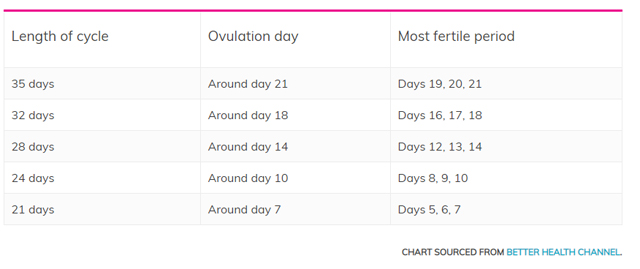Helpful Tips and Tools for Planning a Pregnancy

Deciding that you're ready to start trying for a baby can be an exciting time. There can be feelings of eagerness, anticipation, and often some nerves. Here we provide some tips and tools to help you plan and prepare for pregnancy in a positive, proactive way.
A step toward a healthy start
If you're planning a pregnancy, a good first step is for you – and your partner, if you have one – to visit your doctor for a health check-up before you start trying. Together with your doctor, you can talk about how you can be in the best health to give your future baby the best start in life.
Health checks also help to pinpoint any potential problems early – when they are often more easily treated – that could affect your health, your fertility, or your baby's health.
Pre-pregnancy health checks include a cervical screening test (if you are not currently up to date), screening tests for sexually transmissible infections (STIs), a breast check, a gynaecological check and a review of any medicines you may be taking. Your doctor may also ask you about your relationship with your partner and your mental health.
Pre-pregnancy vaccinations are another good reason to visit your doctor as part of your pregnancy preparation. Some viruses, such as German measles (Rubella), chicken pox, the flu and whooping cough are particularly dangerous for pregnant women and their unborn or newborn babies, so it's vital to be immunised against these illnesses.
If you think you may need dental work, this should ideally be done before getting pregnant. Dental X-rays and some medications used in procedures are often not recommended during pregnancy. So as well as seeing your dentist for your regular check-ups, arrange an appointment before you plan to get pregnant, if required.
Being the healthiest you can be
Being the healthiest you can be – by eating a balanced diet, being physically active and managing your stress levels – is a positive step you and your partner can take in preparing for pregnancy.
Being a healthy weight for your body, not smoking and reducing your alcohol and caffeine intake can all help to enhance your own natural fertility.
Research has found that the health and nutrition of both men and women before conception is important not only in achieving a healthy pregnancy, but also for the lifelong health of their children, and even the next generation.
A healthy, balanced diet is one filled with vegetables, fruit, wholegrains, legumes, nuts and fish, and is low in red and processed meat.
Supplements
It's important to start taking folate before you get pregnant. This will reduce the risk of the baby being born with neural tube defects such as spina bifida. Folate is one of the B vitamins and is best taken as a supplement (folic acid).
In Australia, it's also recommended that women planning a pregnancy take an iodine supplement (containing 150 micrograms of iodine per day) and continue this while pregnant and breastfeeding.
Talk to your doctor, pharmacist or qualified health practitioner for further advice on vitamin supplementation.
Other everyday factors
If you have a partner, they can use it too. Their health is just as important as yours. You can find the tool here.
Getting the timing right
Finally, if you're trying to get pregnant, it helps to know when in the menstrual cycle you are most fertile. This way, you can plan to have sex on the days when the chance of getting pregnancy is the greatest.
Pregnancy is possible during the 'fertile window' of a woman's menstrual cycle. This includes the five days leading up to ovulation (egg release), plus the day of ovulation.
Your chance of conceiving is greatest if you have sex during the two days leading up to ovulation, or on the day of ovulation.
Ovulation happens about 14 days before a period starts. To work out your day of ovulation, you need to know how long your cycles are. To calculate your cycle length, count the number of days you usually have from the first day of your period to the day before your next period.
This chart shows the most fertile days for menstrual cycles of different lengths.
 To help you work out your most fertile days, use this ovulation calculator from Your Fertility.
To help you work out your most fertile days, use this ovulation calculator from Your Fertility. Parting advice
It's important to remember every woman's fertility experience is different.
While some women get pregnant easily, for others it can take many months. And for some, no matter how healthy they are or how well they have prepared themselves, it can be difficult to get pregnant. If you have been trying to get pregnant for 12 months or more – or six months if you're a woman older than 35 years – it's time to talk to your doctor about what to do next.
Learn more about fertility and pregnancy health on the Your Fertility website. This website provides detailed information about what you can do to improve your chances of having children when the time is right for you. It's based on the most up-to-date scientific research and prepared by experts in the field.
Published with the permission of Jean Hailes for Women's Health jeanhailes.org.au 1800 JEAN HAILES (532 642)
MORE
- Midwife Cath Interview
- Colin Anson Interview
- Why Good Health is Essential to Increase Fertility
- 5 Beauty Products to Avoid When You are Pregnant
- Looking After You, Looking After Your Baby
- Andre Carvalho International Pregnancy and...
- NRL Player v Mums
- Safer Internet Day
- The Pink Elephants Support
- Edwina Sharrock Birth Beat Interview
- Make Mums Group Dad-Friendly



